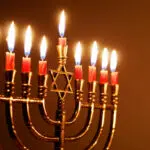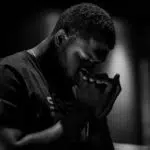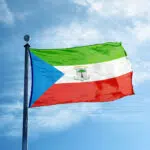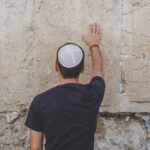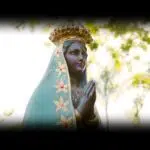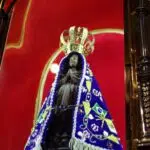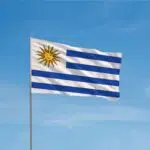The express purpose of Hoshana Rabbah, the seventh day of the Jewish holiday of Sukkot, the 21st day of the month of Tishrei, is rejoicing. Its roots are in celebration of thanksgiving for a bountiful harvest. Always the seventh day of Sukkot, it reminds observant Jews that just as when they wandered in the wilderness more than 2000 years ago, God is their source of protection and determines what the new year will bring.
History of Hoshana Rabbah
Sukkot, a Hebrew word for “booths” or “huts” is the seven-day Jewish festival of thanksgiving. During this time, observant Jews construct a temporary structure or “sukkah” in their yards or on their balconies — if they have access to the outdoors — to symbolize the way the ancient Hebrews lived during the 40 years Moses led them through the wilderness to the Promised Land. They eat, entertain, even sleep in the sukkah if the climate makes that possible.
There are specific customs to observe. Every day except the Sabbath requires taking the Four Kinds. A citron, or “etrog,” a branch of a date palm tree, two willow branches, and three myrtle branches. Bound together, the branches are the “lulav.” On Hoshana Rabbah, a third willow branch is added.
The tradition of the Four Kinds involves turning to the north, south, east, and west and shaking or waving the lulav in one hand and the etrog in the other, up and down, while reciting specific prayers. The positions of the hands-on the lulav are prescribed, and after each wave, the observant should bring it back to touch the chest over the heart.
According to the Midrash, the body of Biblical exegesis by generations of rabbinical scholars, the Four Kinds represent four types of Jews, differentiated by their knowledge of Torah teaching and their good deeds. When the extra willow branch, symbolizing someone who is ignorant of the Torah and does not do good deeds, is added on Hoshana Rabbah, Jews are reminded that they are bound together by the quality of being intrinsically connected to their forefathers, Abraham, Isaac, and Jacob.
Hoshana Rabbah timeline
At the time the First Temple is established in Jerusalem, Sukkot is the most important Jewish holiday, frequently mentioned in the Bible as the holiday of "in-gathering," or harvest.
Jews in New Orleans during the Civil War are unable to find an etrog or citron, but a resourceful rabbi suggests they can substitute a lemon, minus the prayer accompaniment, to make it count.
The Sukkah Project, a retailer in Grand Junction, Colorado, first offers the Klutz-Proof Sukkah Kit.
Sukkah City, a competition in Brooklyn, New York, features 600 very non-traditional and architecturally radical Sukkoth.
Hoshana Rabbah FAQs
What does Hoshana Rabbah mean?
“Hoshana” means “please save us,” and “rabbah” means “great,” so the holiday refers to “the great salvation.” Hoshana Rabbah follows the Jewish New Year, Rosh Hashanah, which is the Day of Judgment.
Is Hoshana Rabbah a Yom Tov?
Hoshana Rabbah is known as the last of the Days of Judgment, which began on Rosh Hashana. Since Hoshana Rabbah blends elements of the High Holy Days, Chol HaMoed, and Yom Tov, in the Ashkenazic tradition, the cantor recites the service using High Holiday, Festival, Weekday, and Sabbath melodies interchangeably.
Is the last day of Sukkot a Sabbath?
The holiday lasts seven days in the Land of Israel and eight in the diaspora. The first day (and second day in the diaspora) is a Shabbat-like holiday when work is forbidden. This is followed by intermediate days called Chol Hamoed when certain work is permitted.
How to Celebrate Hoshana Rabbah
Entertain friends
At night, it's customary to invite people over for a meal, share singing and dancing, and maybe even have live music. Hang string lights in the shape of food, outdoor chandeliers, or decorate the perimeter of the sukkah with solar-powered lights.
Remember the needy
Deuteronomy specifies that "the fatherless and the widow" should be included. One way to do that is to organize a food drive or volunteer at a food bank during Sukkot.
Eat up
During Sukkot, you should eat all your meals in the sukkah as a "mitzvah," or an individual act that complies with religious law. A meal is defined as more than two ounces of grains, so a big bowl of corn flakes should easily qualify. So could a plate of spaghetti.
5 Facts About The Sukkah That Will Blow Your Mind
You can't rent a tent
The sukkah must have two-and-a-half walls, with the roof, or "schach," open to the sky, though it can be covered with branches or fronds, or anything that grows out of the ground.
Some kits are Kosher
If you don't want to construct your own ritual backyard or balcony hut, you can order a kit that will set you back from about $60 to thousands of dollars, accommodate from six to 200 people, and even have certified Kosher components.
You decorate with fruit
Once you've created a partial roof, you hang fruit and other foods symbolic of a bountiful harvest from it.
There was no Sinai Hilton
The sukkah represents the temporary, basic shelters the Jews lived in during the 40 years they wandered in the wilderness in search of the Promised Land.
You can't cover your head
The roof of the sukkah can't have an overhang of more than four feet, because you have to sit under the part of the roof that isn't covered to fulfill a mitzvah.
Outdoor living is fun — for a while
Outdoor living is fun — for a while
Erecting a sukkah in the yard or on the deck is as close as most of us come these days to camping. We're outside, but we don't have to worry about bears or shlep stuff like a chemical toilet and toilet paper. And if it rains, Leviticus permits us to get back in the house.
Rituals reinforce community and tradition
The entire Festival of Booths is a family holiday, and as such, it's built on traditional practices, use of ritual objects, and hospitality. Family activities include decorating the sukkah with lights, posters, and pictures, preparing festive foods, and entertaining guests.
It's a counterpoint to Yom Kippur
According to the Midrash, God told Abraham that if the children of Israel don't attain atonement on Yom Kippur, he will discharge it on Hoshana Rabbah. After the solemnity of Yom Kippur, Hoshana Rabbah feels like a sign of relief — and you can have dessert at lunch, too.
Hoshana Rabbah dates
| Year | Date | Day |
|---|---|---|
| 2024 | October 22 | Tuesday |
| 2025 | October 12 | Sunday |

